“The nine most terrifying words in the English language are: ‘I’m from the government and I’m here to help.'” That observation was made famous by President Ronald Reagan, even if not originated by him. The recent passage of the SAFE Act and the subsequent developments at the state levels in reaction to it certainly brings to mind that quotation. Congress passed the SAFE Act as a reaction to the bursting of the housing bubble, which had been expanding for more than a decade. The SAFE Act has specific language that requires parties to comply with new licensing requirements if a particular party in the transaction performs two separate functions and uses the word “and” to connect the functions.
When a national organization developed “model” language to assist states in developing their laws in compliance with the SAFE Act, the word “and” was replaced with the word “or.” While the SAFE Act’s language permits individual states to adopt language that exceeds the mandates within the act, the net impact of the creation of the “model language” was that many states took the path of least resistance and used the suggested language from the “model.” The adoption of the “model language” by a significant number of states has raised the bar for compliance with the SAFE Act in those affected states. This extreme application using the model language raises the cost of doing business in the affected states and does not reflect the intent of Congress when the act was passed.
A partial list of the consequences of the SAFE Act:
- Exit of lenders at the state level rather than go through the ratcheted-up licensing level
- Increased costs for those lenders who did not exit
- Increased costs for lenders with a national presence, for they have to comply with multiple states’ licensing requirements
- Exit of lenders that had a multi-state presence, but could not handle the attendant compliance
The net result to the consumer is fewer lenders to compete for his/her business. Those lenders that are available have to charge higher interest rates to cover the increased costs that occurred from compliance activities.
###
Douglas Gorman, Home-Mart, Inc.
doug@homemart.us



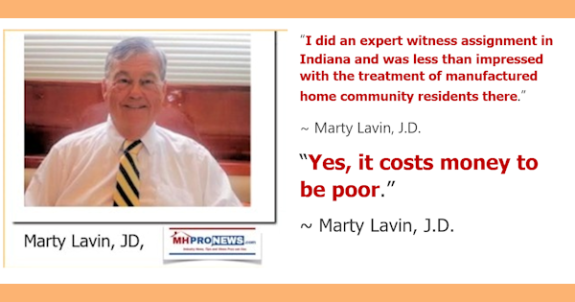
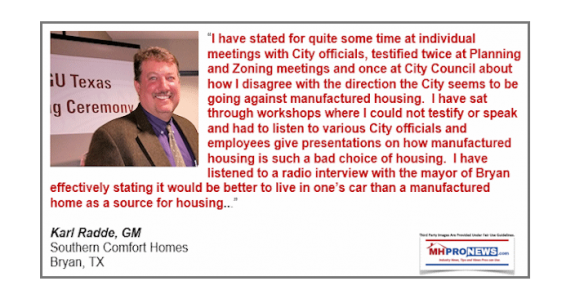
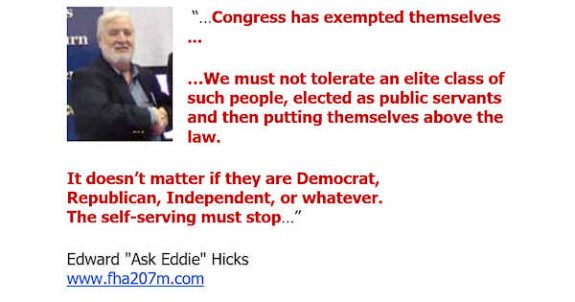
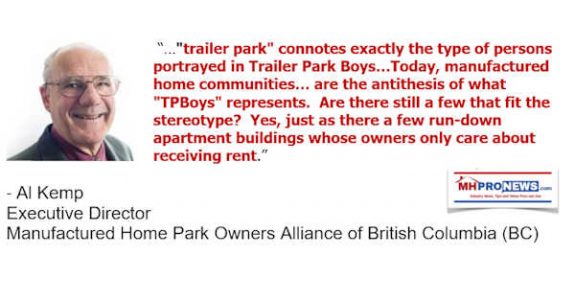
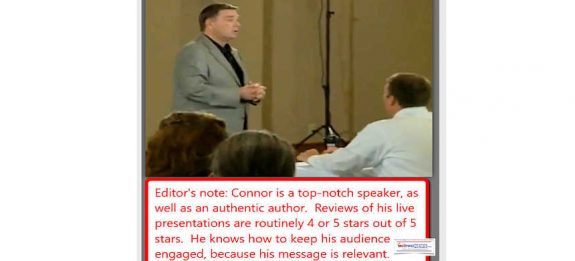
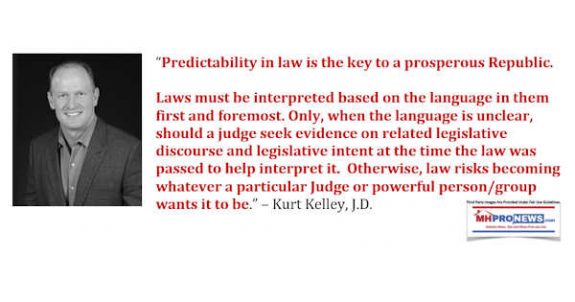
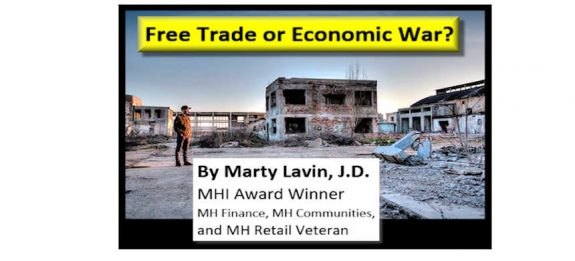
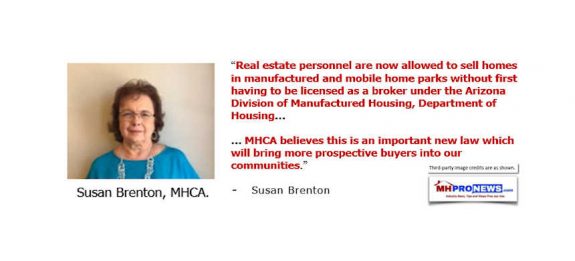
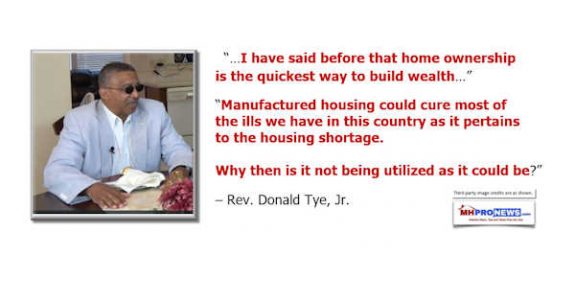
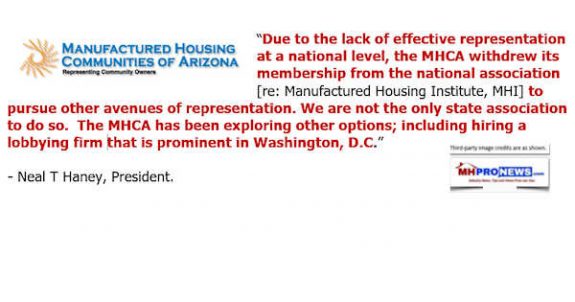
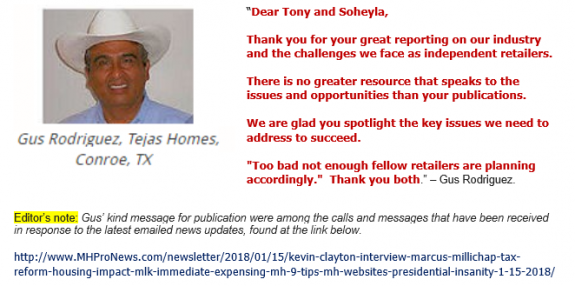
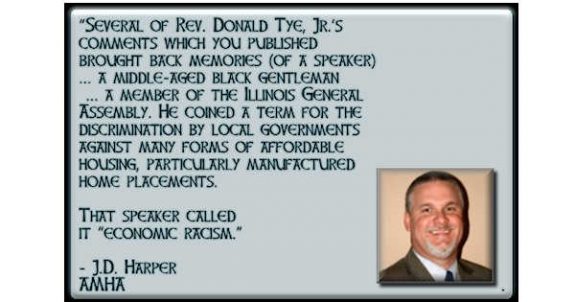
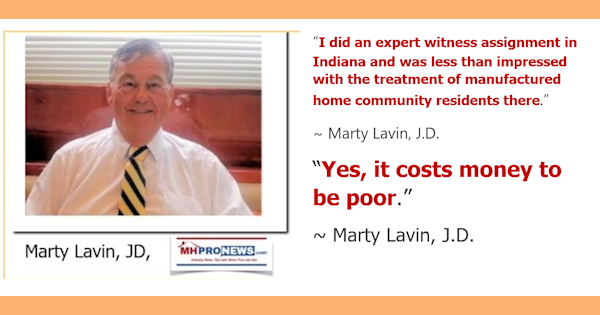
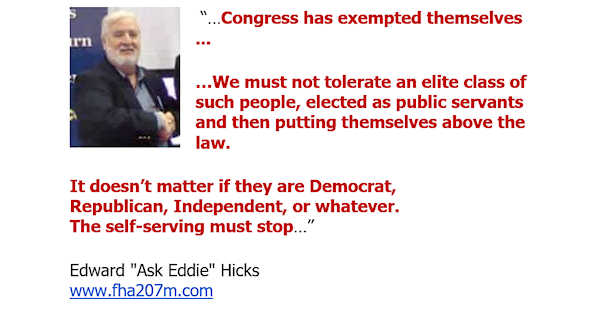
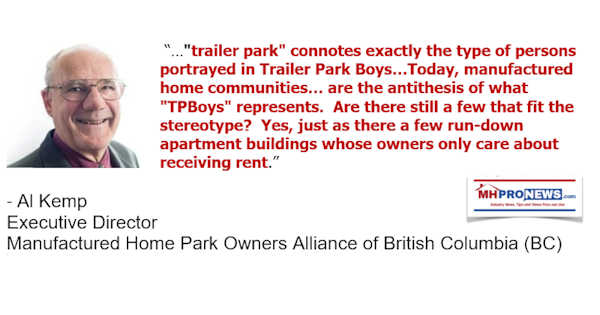
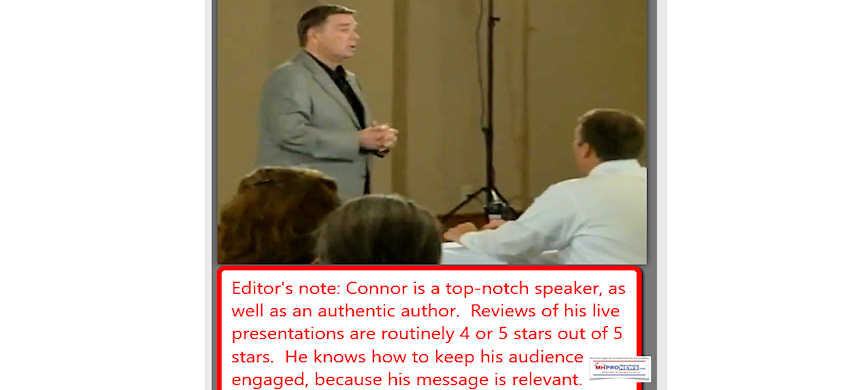
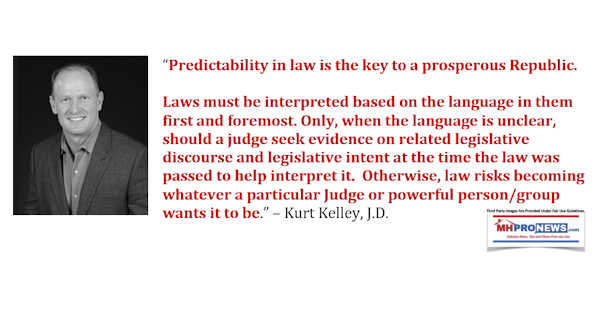
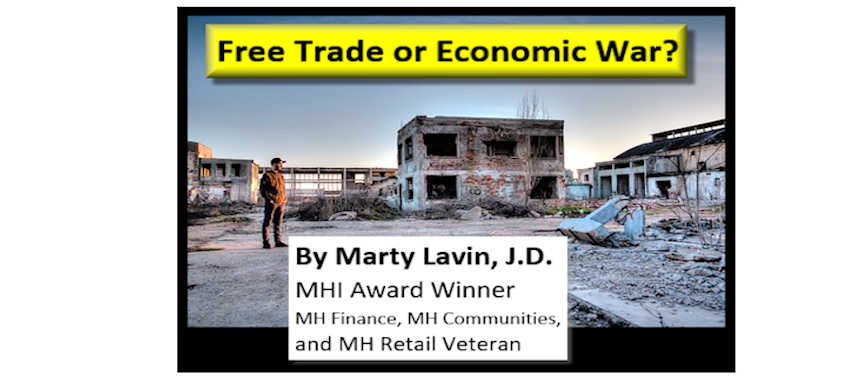
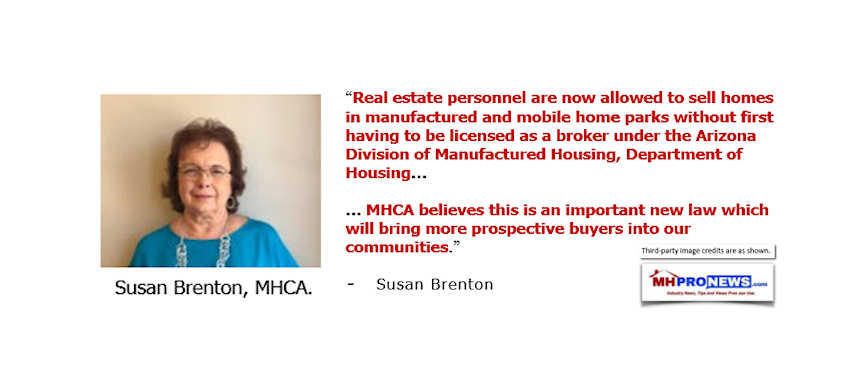
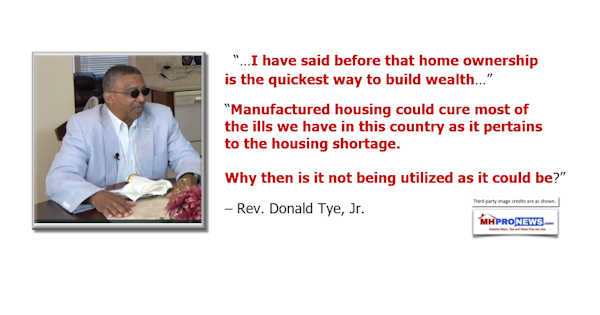
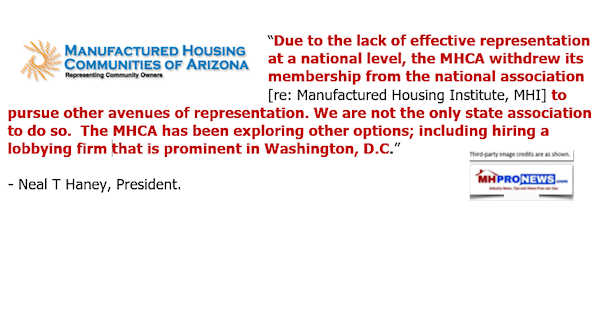
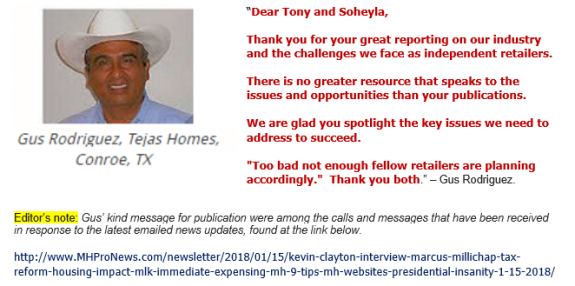
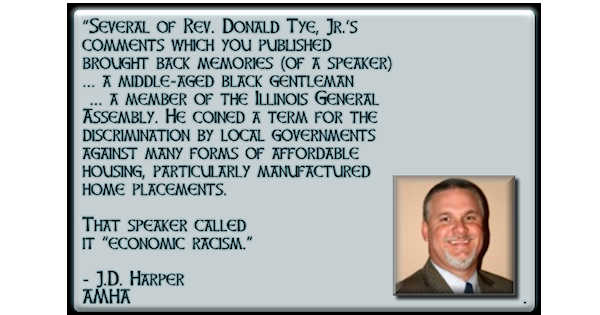
Karl Radde – TMHA, MHI, Southern Comfort Homes – Addressing Bryan City Leaders, Letter on Proposed Manufactured Home Ban
To All Concerned [Bryan City Officials, Others]: As the retail location referenced by Mr. Inderman, I would like to take a moment to address the …